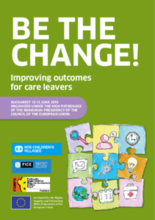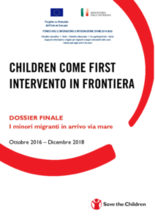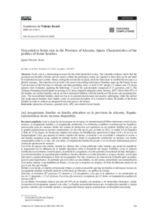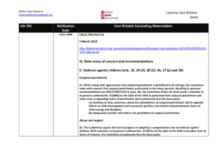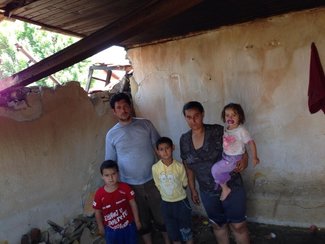

Displaying 201 - 210 of 544
This report from SOS Children's Villages describes the Leaving Care Project, a project that was set up to develop and implement a state-of-the-art training programme for care professionals who work directly with young people leaving care in order to equip them with the skills, knowledge and tools they need to work with young people in transition.
The general objective of the project "Children Come First: Intervention at the border" is to strengthen the system of protection and reception of migrant children arriving in Italy, whether they are separated or accompanied by their parents. In this final dossier, a balance sheet of the intervention has been drawn up and it focuses on the evolution of migration flows of unaccompanied foreign minors over the past two years.
This study analyzed how the implementation of the strategy of extending learning time in a group of adolescents living in residential care contributed to promoting their scientific vocations and increasing their academic expectations and their knowledge of these disciplines.
The aim of this study is to compare the subjective well-being (SWB) of children hosted in institutions and in foster families with the well-being of children living with their families. Results indicate that children in residential care have a lower SWB in all variables compared to foster care and general populations groups.
This article describes what type of families make up the Family Foster Care resource of the Province of Alicante and their parenting styles.
This study focused on health promotion for children and young adults who live in residential care institutions in Portugal.
Given the impact that institutional care has been found to have on psychological and cognitive outcomes, the authors make the case for the adaptation of Early Childhood Child Care HOME (EC-CC-HOME), a world-renowned instrument that assesses children’s child-care environment, to the Greek context.
This paper presents an overview of ChildHub, a peer learning and capacity-building network for child protection professionals initially developed and deployed in South-East Europe, and outlines a proposal for contextualizing ChildHub to Africa and South Asia.
This book largely focuses on unaccompanied minors who arrived in a European country in 2015, with special attention paid to the top-three nationalities of unaccompanied minors, namely Syrian, Afghan and Eritrean minors.
This country care review includes the care-related Concluding Observations adopted by the Committee on the Rights of the Child and the Committee on the Rights of Persons with Disabilities.

